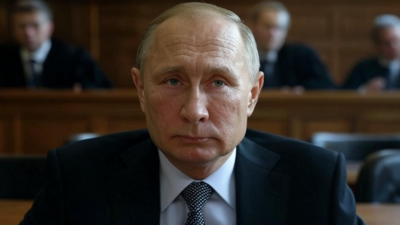
More than 40 world leaders have backed the creation of a new international court to prosecute senior Russian officials for the invasion of Ukraine. Since Russia is not part of the International Criminal Court, its top leaders, including president Vladimir Putin, are beyond the ICC’s reach for the crime of aggression.
The proposed tribunal, a joint effort by Ukraine and the Council of Europe, aims to close this legal gap. The move is seen as an attempt to deliver justice for a war that has displaced millions, caused widespread civilian suffering, and left towns in ruins. Legal work is reportedly complete, and the tribunal is expected to be formalised later this month.
What is special tribunal for Ukraine
Why it’s neededThe tribunal will focus on prosecuting Russia’s top leadership for the “crime of aggression”—a legal term that refers to planning and executing an invasion of another country.
Although the International Criminal Court can try individuals for war crimes, crimes against humanity, and genocide, it cannot prosecute for aggression unless the accused country is a member. Russia is not. How it will workThe tribunal will be based on a legal agreement between Ukraine and the Council of Europe, Europe’s top human rights body. It will operate with funding from a group of supportive countries, including the Netherlands, Canada and Japan.
The court can try cases in absentia, and while sitting heads of state cannot be prosecuted immediately, cases can begin and be held until they leave office. There is no time limit on prosecuting aggression.Who will be triedThe focus will be on 20 to 30 top-level officials in the Russian government, not lower-level soldiers. Experts compare the approach to post-World War II trials, such as Nuremberg, where senior Nazi leaders were prosecuted for leading a war of aggression. What makes it differentThis is the first attempt since the Nuremberg trials to prosecute the crime of aggression through a dedicated tribunal following World War II. Previous efforts, like those in Rwanda and the former Yugoslavia, focused on genocide and war crimes. What nextThe legal groundwork is done, and the court is expected to be formalised by the Council of Europe’s Committee of Ministers in Luxembourg this month. While the exact location is not yet decided, The Hague is a likely host, as it already houses several international judicial bodies. Backers hope the tribunal will be up and running by early next year.

 10 hours ago
37
10 hours ago
37




























 English (US)
English (US)